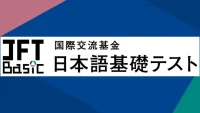What does "マター (mata)" mean in business? Usage, example sentences, and thesaurus.

"マター (mata)" is a term often heard in the business world. It is derived from the English word "matter," but the Japanese word "マター" has a different meaning from the English word, so care must be taken in its usage.
In this article, we will explain in detail the meaning, usage, example sentences, and thesaurus of "マター". We will also touch on some points to keep in mind when using "マター" in business situations, so please be sure to refer to this article.
▼Goandup Picks Click here for recommended articles!
- Required before studying abroad! Goandup Nihongo+, an online Japanese language learning service
- This page introduces services for foreigners who wish to study in Japan or improve their Japanese language skills to learn Japanese online.
- Goandup Salon" community for foreigners living in Japan
- We introduce an online community where foreigners living in Japan can exchange information and interact with each other to support their life in Japan.
- Goandup Study" supports foreigners who want to study in Japan.
- This section introduces study abroad support services that provide comprehensive support to foreigners who wish to study in Japan, from preparation for study abroad to living in Japan.
- Where can I buy a prepaid SIM in Japan? Recommended SIM cards for foreigners are also introduced.
- How to purchase a prepaid SIM and suitable SIM cards for foreigners.
- The Complete Guide to Pocket Wi-Fi in Japan for Foreigners!
- We introduce how to select and recommend pocket Wi-Fi products that can be used conveniently in Japan.
- The Complete Guide to Finding a Job in Japan! Finding a job, changing jobs, and part-time work for foreigners
- This site provides foreigners who want to work in Japan with comprehensive information on how to find a job, recommended job sites, and other information necessary to find a job.
What does "マター (mata)" mean?

The Japanese word "マター" is derived from the English word "matter. However, the Japanese word "マター" is used differently from the English word "matter.
First, let's review the main meaning of "matter" in English.
- question (e.g. on a test)
- matter
- the essence of the matter
- Important Points
- Troubleshooting
- troublesome matter
- Matter (as opposed to spirit or mind), etc.
These represent the general connotations of "matter".
In contrast, the Japanese word "マター" is used as a katakana business term that primarily refers to a project or matter. Specifically, it is often used to mean "~ is in charge of" or "~ is responsible for".
For example, "マター" is added after a person's name or department name, such as "Tanaka マター" or "Sales Department マター." This concisely expresses meanings like "Tanaka's responsible project" or "the Sales Department's responsible project."
It is important to understand the difference between the general meaning indicated by the English word "matter" and the business-specific connotation of the Japanese word "マター."
Analogies and Paraphrases for "マター (mata)"

By knowing the synonyms and paraphrases of "マター," you will be able to choose the appropriate word for each situation. It is also a good way to improve your Japanese vocabulary, so learn the thesaurus along with "マター".
- 担当 (person in charge, tantou)
- 所管 (jurisdiction, shokan)
- 管轄 (jurisdiction, kankatsu)
- お預かり (in one's charge, oazukari)
- 責任範囲 (scope of responsibility, sekinin hani)
These similes can be used with almost the same meaning as "マター". However, "Oazukari" is a slightly more polite expression. It is best to use them according to the situation.
What to look out for when using mata

There are a few things to keep in mind when using "mater." First, "mater" is a casual word, so it should not be used outside the company, such as in conversations with business partners or people from other companies. Even within a company, it is safer not to use it with superiors or superiors.
Also, although "mater" is generally used without honorific title after the name of a person or department, when using it for a superior or superior person, the honorific title should be added before "mater," as in "Mr. A. Mater.
Because of the abbreviated nature of "matter," its use in formal documents and e-mails should also be avoided. It is recommended that it be used only in verbal communication or in casual internal company e-mails.
"マター (mata)" Business Gene Usage Example

Let's look at some specific examples of how "マター" is used in actual business situations. We assume internal communication situations, so please refer to them and try to use them in your daily work.
Business Applications of "マター (mata)" (1)
When referring to the person in charge of the project
Mr. Suzuki is in charge.
→ It's Suzuki マター.
Business Uses of "マター (mata)" (2)
When referring to the scope of jurisdiction of a specific department
This matter is not under the jurisdiction of the Research Department.
→ This project is not a Research Department マター.
Business Uses of mata (3)
When explaining your responsibilities
I am in charge of developing new products.
→ I am in charge of new product development マター.
"マター" is a useful word that facilitates information sharing and communication within a company, as it succinctly expresses the person in charge of a task and the scope of responsibility. However, be careful about whom and under what circumstances you use it.
Serious employment support to help you realize your dream of working in Japan!

Do you want to work in Japan?
Let us "Goandup" make that dream a reality!
【 Program Features 】
✅ JLPT N3 level Japanese language acquisition
✅ Thorough preparation for the specific skills test
✅ Full support for job hunting in Japan
Business-focused one-on-one lessons will help you find a job in Japan in the shortest possible time.
【 Program Menu 】
- Individual Japanese language lessons
- Intensive curriculum to obtain N3, especially specialized lessons for business Japanese that can be used at work.
- Intensive curriculum to obtain N3, especially specialized lessons for business Japanese that can be used at work.
- Preparation for the Specific Skills Test
- Customized materials for specific skill tests will be used to focus on frequently asked questions and learning to pass the test.
- Customized materials for specific skill tests will be used to focus on frequently asked questions and learning to pass the test.
- Resume and CV support
- To create resumes and CVs tailored to Japanese corporate culture, and to brush up on self-promotion and motivation for application.
- To create resumes and CVs tailored to Japanese corporate culture, and to brush up on self-promotion and motivation for application.
- Interview Preparation
- Guidance on areas for improvement through mock interviews and feedback based on corporate interview scenarios. Learn interview etiquette and behavior unique to Japan.
- Guidance on areas for improvement through mock interviews and feedback based on corporate interview scenarios. Learn interview etiquette and behavior unique to Japan.
- career consulting
- Provide introductions to companies that match the participant's career goals, select companies to apply to, and provide advice on the level of knowledge required by the companies to which the participant is applying.
- Provide introductions to companies that match the participant's career goals, select companies to apply to, and provide advice on the level of knowledge required by the companies to which the participant is applying.
- Chat Support
- In addition to one-on-one individual lessons, we also accept casual questions via DM (visa application, living support, assistance in finding a room, etc.).
If you are serious about your career in Japan, join us now!
▶︎ for more informationclick here.
We will do our best to support your success in Japan!
summary
In this issue, we have explained in detail about "マター" as it is often used in the business world. The points are as follows
- The Japanese word "マター" is derived from the English word "matter," but the meaning is very different.
- "マター" is a business term used to mean "~'s in charge" or "~ is responsible for."
- The words "in charge," "jurisdiction," "jurisdiction," "entrusted," and "area of responsibility" can be used as analogues of "マター."
- "マター" should not be used with people outside the company, and even within the company, care should be taken with whom and in what situations it is used.
"マター" is a useful word that facilitates business communication, but it should be used in select situations. Especially when dealing with people outside the company, try to avoid "マター" and use more formal language.
In addition, by correctly understanding the meaning of "マター" and remembering it along with its analogies, you will be able to choose the appropriate word for the situation. Let's deepen our knowledge of Japanese business terms so that we can feel the depth of the language and use it correctly.
If you want to know more about ◆Business Japanese, check out the following articles!
- What does [understand well] 「逆に」 mean? Thesaurus and example sentences.
- Explains the meaning of the business term "draft". Is it different from draft beer?
- What is the meaning and usage of the word "drop"? And example sentences in business situations.
- What does "zakkuri" mean and how is it used? Expressions in business situations are also introduced.
- What does "ass" mean as used in business conversation?
- What does "Tatakidate" mean in Business x Japanese? Explanation + Example Sentences
In addition to "マター," there are many other Japanese expressions used in business situations. Please check out the related article above for a selection of words that show the depth of business Japanese.
Your support will help us!
Thank you for visiting Goandup Picks. Our mission is to provide you with more useful information to show the world what Japan has to offer.
Your support will help us to further enhance our activities, so please support us!






